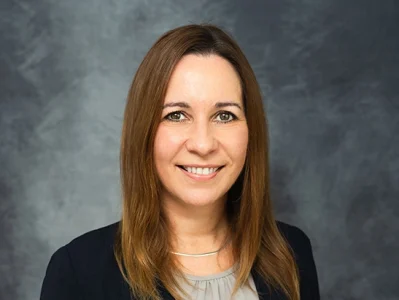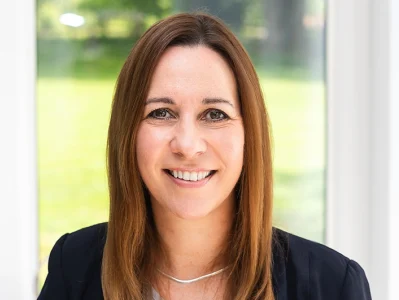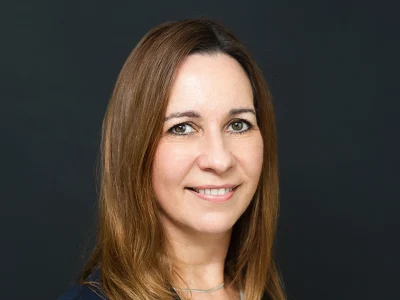Julia Haygreen
BA (Hons) Counselling,
FdSc, Diploma Counselling,
MBACP Senior Accredited,
Counselling Supervisor
Supporting and motivating you towards a happy, healthy and fulfilling life
Welcome
You have taken a courageous first step reaching out for support. We all need help through life, especially during difficult or challenging times. By starting the process of talking to work through your thoughts and feelings and address the issues, you can start making positive changes, feeling better and living the life you deserve.
As a trained and experienced professional with a passion for helping people, I have a proven track record of achieving results. We will create a relationship based on trust, which helps you work through difficult experiences and move forward to lead a happier, healthier, and more fulfilling life.
People from all walks of life and backgrounds benefit from receiving guidance and support, gaining tools and techniques to create healing, positive change and personal growth. With over 14 years of professional, hands-on experience, I bring a wealth of mental health expertise to our sessions with a gently encouraging approach.
Would you like to...
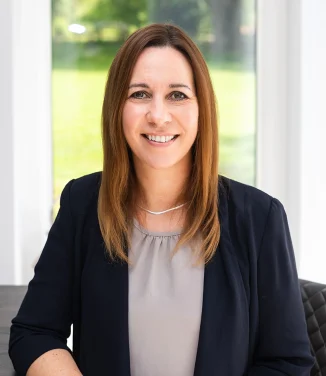
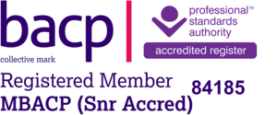
- Feel less low and anxious, recover from depression and feel lighter?
- Address low confidence and self esteem and feel better about yourself?
- Heal from grief, bereavement, loss or a break-up and enjoy life again?
- Manage difficult feelings like anger, sadness, guilt or shame and feel less tense?
- Process a trauma, PTSD or abuse situation and start to re-build?
- Reduce work-related stress, address corporate pressures and feel more in control?
- Work through an internal issue or manage an external influence and see things more clearly?
- Process Autism, ADHD, identity issues and understand yourself better?
- Experience deeper, more genuine and fulfilling relationships and learn how to set boundaries?
- Leave a controlling, abusive or unhappy relationship and feel safe?
- Manage panic attacks and social anxiety and feel more confident?
- Address chronic illness, health anxiety, addiction, sleep issues and learn ways to self-regulate?
- Feel more resilient and able to deal with life effectively?
- Understand how the past affects your life today and stop wondering 'why?'
- Consider your options and make a big decision, feeling more empowered?
- Discover yourself, your identity and purpose, with goals and a new outlook?
- Find more meaning and contentment in life and feel hopeful about the future?
You will receive - Supportive and effective counselling that is meaningful and transformative. Relational, integrative counselling and psychotherapy with CBT tools and techniques.
Are you curious about Autism and ADHD? We can talk about signs, symptoms and the need for support and strategies to manage a diagnosis or considered diagnosis.
Credentials - I have a 20-year background in business followed by 14 years experience as a counsellor, psychotherapist and counselling supervisor. This enables me to understand the demands and pressures in diverse workplace environments.
Meeting online - We can meet online in live sessions (Zoom, MS Teams, WhatsApp video) which is a highly effective way of connecting in counselling, with excellent outcomes. Meeting online allows you to access support from the comfort of wherever you are, without travelling time and costs. All you need is an internet connection and a quiet, secure space, whether it's at home, your workplace or overseas. Let's have an initial introduction (20-minutes, free or charge) before meeting regularly.
Working With Me
Do you feel surrounded by people yet no-one to confide in or don't want to feel like a burden? I am here to offer you the time and space for open and honest conversations.
You may find relief in expressing what’s been weighing you down. Unresolved problems can cause other issues and hold you back from fully living your life, affecting the decisions you make, the relationships you are in and even having affecting your health. Could now be time to make a change?
I can help you build resilience, achieve personal growth and gain a sense of control and choice as you move forward. Together, we will identify your goals and regularly review our progress to ensure it aligns with your needs and expectations.
In working with people from diverse backgrounds and life experiences, I consistently witness tangible, life-changing moments. I offer a variety of counselling approaches to provide the support that best suits your individual needs.
We will work at a pace that feels safe and comfortable for you. I also provide gentle challenges and prompts when needed, offering observations and reflections to help you make connections, gain insights, and experience those ‘lightbulb’ moments. This approach can deepen your self-awareness and have a beneficial impact on many other aspects of your life.
Counselling can help support you to make the changes that will help you lead a more contented and fulfilled life. Read more about my approach to Counselling and how I can help you.
This can help with deep-rooted issues that impact your relationship with yourself and others. Read more about my approach to Psychotherapy and how I can help you.
Read more about my Clinical Supervision services online via Zoom, WhatsApp or Facetime. learn more here.
I have experience working with the following issues, among others;
Trauma
PTSD
Stress and Burnout
Anxiety
Relationships
Menopause
Anger management
Panic Attacks
Depression
Personal identity, purpose, principles and goals
Feeling lost, overwhelmed or stuck
Confidence and low self-esteem
Loss of home, job, status, finances, friendships
Career and Corporate pressures
Suicide attempts / suicidal thoughts
Self-harm
Parenting
Family dynamics
Health anxiety, short-term health conditions, injury
Workplace stress
Perfectionism
Bereavement
Communication issues
Feeling isolated or disconnected
People-pleasing
Co-dependency
Addictions - alcohol, sex, porn, narcotics, weed
ADHD and Autism
Long term illness including Cancer, Fibromyalgia, MS, Long-covid
Frequently asked questions
I would like to think that you would choose me as your counsellor because, on talking or meeting for the first time, you feel that I am someone you could trust. Trust is important because if we are going to work together, you need to feel safe enough to open up.
It feels important here to say something about the difference between trust, vulnerability and risk. Trust is about feeling safe, supported and in good hands. When you feel safe you can open up, which is about being honest, authentic and transparent. This honesty helps you understand yourself and builds self awareness and self-confidence. Research consistently shows that the quality of the therapeutic relationship between the client and counsellor is more predictive of counselling outcome than any other factor.
You may have heard people talk about vulnerability, or you may feel that opening up makes you vulnerable and that this could be risky. So, maybe you don’t quite fully open up, or you edit the truth, or you soften it to suit what other people want to hear. This keeps a part of you hidden, never fully acknowledged, hidden in the shadows as a secret wrapped in maybe guilt or shame. And no-one fully knows you, and you feel your relationships aren’t as real as you would like them to be and that you are alone, with no-one who really knows you, the whole you. And that can lead to all sorts of problems in life, relationships, work, family and a general sense that life isn’t as fun or
fulfilling as it could be.
The well-known American therapist Brene Brown says that “Vulnerability sounds like truth and feels like courage. Truth and courage aren't always comfortable, but they're never weakness." Trusting me and opening up are about taking a courageous risk. The risk that goes to the core of the fear that many people have; ‘If I open up and make myself known, I risk not being liked. I could be rejected and that would be painful. I don’t want to feel that pain’.
It is true to say that we cannot be liked by everyone. But, as you consider why you should choose me as your counsellor, I am transparent in saying that our working relationship is a very different one to other relationships in your life. This is because other people will come with their own agendas, their own needs and opinions of what you should or shouldn’t do, and this includes the risk of rejection. My only agenda is to work in your best interests. To meet you with honesty, kindness and warmth, with the capacity to care about you and contain what you tell me, without judging or rejecting you. To like you and accept you, including the parts that you may find difficult to like and accept within yourself. We could call these your ‘shadow’. The parts of yourself that you may feel less proud of, you don’t want people to know about and you want them to stay hidden. Counselling isn’t about telling everyone about these parts. We all have them in some form or another, yet acknowledging them can help to reduce some shame attached to them and increase acceptance that they are part of you and make you human and whole. This can help you feel better about who you are, ready to accept, like and love yourself and more 'comfortable in your own skin'.
Counselling is about facing things… facing fears and feelings. It’s about coming to terms with difficult life events, working through them and being able to ‘file’ them where they belong, so they are a reference point in the history of your life and new chapters can open up ahead. Counselling is about taking a courageous step to face what is causing you discomfort, and begin to convert it. To create fun instead of frustration. Hope instead of hopelessness. Motivation instead of dissatisfied. Proactive instead of stuck. Counselling is about change. Positive change. Good change. Growth-enhancing change. Change that is within your choice and control and helps you feel empowered, positive and better able to face forward into the life/relationship/job/future that you want.
You know your needs and your situation. We can work together to address those needs. You have read and researched about counselling to help make a decision so you probably have a pretty good feel for things.
If what you have read here resonates with you and you feel I am the best option for you to get things moving forward, please contact me.
Counsellors may have received similar training on their route to qualification, but each therapist is an individual person and will have their own personal approach. I can tell you how I am different to other counsellors by answering this question in two ways – professionally and personally. The personal bit is to tell you what I believe, and the professional bit is to tell you how I put that into practice in the way I work. This shows that what I do is consistent with what I believe people need. Here are my five core beliefs;
First, I believe that people grow and develop best when we are connected to other people, in personal or professional relationships or through shared interests or experiences. This need for connection is part of our evolutionary, social make-up. This belief links me to the values of connection and collaboration. The way I work with this is through the important of the working alliance, the relationship between us that is the best predictor for a successful outcome in counselling. This means that when we work together we can achieve more than when we work in isolation, and when we are the right ‘fit’, you will get the most out of it. I offer empathy, non judgement and honesty to develop our relationship so that trust can build and we have a safe basis to work through the
issues you bring to counselling.
Second, I believe it is important to understand how we all relate to other people because this helps us realise the impact we have on them and the impact they have on us. This can be a catalyst for change and growth in our relationships. This links me to the value of relationships. The way I work with this is to see what the relationship between us tells us about how you relate to others in your life (how you respond/react/engage) and to look at where these patterns come from, including which ones work for you and which ones don’t. The reference points for this could be your intimate relationships, or with friends, family parents, siblings, colleagues or any other relationship you have had. I work with this by sharing with you how I may be feeling in response to what you are saying, is it my feeling or yours and where does it come from? For example, if I hear about a difficult experience you have had but there is no emotion attached to it, I would ask you about that and wonder where the feelings are hiding. Or there could be a lot of feelings coming out and we need to allow those to be expressed and also find ways to create emotional regulation and resilience.
Third, I believe that experiencing healthy, meaningful relationships allows us to heal from unhealthy historical relational patterns. This helps us find better ways of relating and gives us a better experience of living. This links me to the value of healing and the importance in reparative relationships. In practice, this means that I offer you a relational experience that is different from other, unhealthy, dysfunctional ones that have caused you harm or upset in the past. When you experience something different, fresh and robust, you can find ways to take this into other relationships to make them more fulfilling, genuine and equal. For example, you might tell me something you did that you don’t feel good about, and be surprised that instead of judging you - which you expected because that’s what others have done, or because you judge yourself - I can empathise with how difficult things must have been for you leading up to that, and ask what have you learned and how can you forgive yourself and move forward, because you need that too. This different relational experience can be healing and transformative.
Fourth, I believe that we need to experience real and genuine human contact and for our unique experience of living to be heard and understood. We need to be loved and accepted by others. This links me to the value of individual uniqueness. In counselling this means accepting you as you are, hearing your story from your point of view, valuing who you are as a person and creating a connection. This could feel like one of those moments when someone just ‘gets’ you, which is so important in life.
Fifth, I believe that self-reflection enables us to know and discover ourselves. Finding personal meaning in our experiences helps develop our self-awareness. This includes embracing the unknown about ourselves and accepting parts we are less comfortable with because they make us human and whole. This links me to the value of spirituality. For some people this may have a faith or religious element, for others it may be a feeling that they are part of something bigger out there, whether that is the universe, or nature, or simply an awareness that there is so much out there that we just don’t know.
The way this can present in counselling is by acknowledging your personal experience of existing in the world. You may feel this as a memory coming back to you that had been buried in your unconscious and now comes into conscious awareness so it can be looked at. Or a ‘lightbulb’ moment of realisation’, or the awareness that there is no-one else you can be in this world except yourself. Or you may remember that you used to love walking in the woods beneath shady trees, or looking at the night skies, or watching waves crash on a beach, or when did you last visit your church or faith group or even just feel grateful for being alive? There are so many ways to connect, to the world around us and ultimately to ourselves and each other.
The working relationship between us is a safe one, contained within the boundaries of a counsellor/client collaboration. Through this relationship we explore the most important relationship that you will ever have, which is the relationship with yourself. This includes how you see yourself, how you love and value yourself, how you celebrate who you are and what you have to give, how you treat yourself and how you allow yourself to be treated. This relationship as the one you take into all other interactions in your life. So, let’s get to know you, who you are and why, and find the best you in there.
Going to therapy is one of the most important decisions you can make for yourself. Your sessions allow you to explore who you are, better understand your habits and coping techniques, unpack past events and traumas,
and create new pathways of behaviour. Attending therapy is a clear sign that you’re committed to leading your life with a healthier and happier mindset. There isn’t a one-size-fits-all timeline that applies to everyone. However, you can begin seeing the positive effects of therapy from your very first session.
You might feel a huge sense of relief because you’ve connected with someone who hears, sees, and understands you. You may immediately begin to feel more hopeful and less alone. You may feel relief at having got something off your chest or reassured that you have found a therapist you feel comfortable with and that the process has started. You may feel excited or hopeful because this is the first step to reach your goal, or nervous because you’re not sure how the process will go. You may feel unburdened of heavy or difficult emotions, or fearful of letting them out because they may hurt. You may feel worried about crying in front of someone or longing to feel
that it’s ok to cry and not be judged.
For some people it can take more time to experience the positive impacts of therapy. The first few sessions can be overwhelming since you’re opening up to someone new and talking about things that may not be easy. You may even feel slightly worse afterward, particularly if you’re uncovering painful experiences.
It’s human nature to resist change because it’s hard and profoundly uncomfortable, but a therapist can help guide you through to accomplish your goals. Once you’re able to work past that discomfort and settle into your therapy session, you should begin seeing small benefits and eventually bigger changes in your day-to-day life, relationships, and mental well-being. It takes incredible courage to face fears and feelings, so if you are feeling this way, lean into it and share with me so I can empathise and give you the support and guidance you need.
There may be scenarios when your therapist isn’t an ideal fit. This is completely normal, and therapists also understand that not every client is going to be a fit. If you’ve attended a few sessions and still feel that way, I would encourage you to let me know how you are feeling and I will support you in finding an alternative therapist.
You can begin seeing subtle signs of therapy working as quickly as your first session. Often, though, it can take at least a few sessions to reap the rewards. Some find that they only need a few months of therapy while others prefer to make therapy an ongoing practice. Whatever the case, remain proud of the fact that you made a deliberate commitment to your personal growth.
(https://www.verywellmind.com/how-long-does-it-take-for-therapy-to-work-6834455)
Yes, I work online via Zoom (using a password protected link), WhatsApp or FaceTime. Working online is a highly effective way of engaging in counselling, with good results, from wherever you are in the UK or overseas.
The ever-evolving world around us has led to technology playing an integral role in how we lead our lives. With the rise of digital healthcare having accelerated in recent times, it’s now common to undergo routine GP check-ups via Zoom, make medical appointments and pick up prescriptions through an online app, and receive mental healthcare remotely.
Advancements in video calling and mobile connectivity makes therapy accessible online, giving you an alternative to traditional face-to-face talking therapies. It’s a highly effective solution for treating mental health conditions, with many unique advantages.
Thanks to its flexibility and ease of access, online therapy isn’t just for people at ‘rock bottom’. It can be very effective if you simply want to talk about things in your life that may have been worrying or bothering you. It can also help you to learn some new coping techniques to deal with things going on in your life.
What are the benefits of online therapy?
Convenient and flexible
Online therapy means you don’t have to travel anywhere to get the help you need, saving you time and money. This is also helpful if your mental health, mobility or other issues make it difficult to leave the house, or if you live in a remote area.
Greater availability
With evening and weekend appointments available, you can get the help you need without impacting work, childcare or other weekday-based priorities. You can choose a time that works best for you.
The comfort of home
Online therapy means you can receive support in a place where you feel comfortable and at ease. Being able to sit in your living room with your favourite hot drink, in comfortable clothes, perhaps with a blanket or a pet by your side, can create a peaceful and relaxing setting, which can be therapeutic in itself. This can also make it easier for you to open up about what you’re going through.
Privacy
With online therapy, you don’t have to travel anywhere and you don’t have to worry about encountering anyone in a waiting room or outside the mental health clinic. Your sessions will be conducted in complete privacy, with no risk of bumping into someone you know or being in a space with strangers when you’re feeling vulnerable.
Security
We protect all of your personal information, including your personal details and sensitive information around your health and online therapy sessions.
Are there any disadvantages to online therapy?
While online therapy offers many benefits, it’s important to note that it may not be suitable for everyone. For example, it may not offer the optimum level of support for more acute mental health problems, and it might not be the best platform to deliver certain types of therapy techniques.
How effective is online therapy?
Many studies show that online therapy is highly effective.
A recent study in the Journal of Anxiety Disorders concluded that online cognitive behavioural therapy (CBT), is equally impactful as face-to-face CBT.
Another study in the World Journal of Psychiatry found the following:
- Online therapy has the same positive outcomes as face-to-face therapy
- Overall, clients receiving online counselling report being satisfied with their experiences. Many people state that online therapy is easy to use and means they don’t have to travel to appointments
- Mental health assessments made using online therapy are just as reliable as assessments made during face-to-face therapy
(https://www.priorygroup.com/online-therapy/the-benefits-of-online-therapy)
I would like to offer you counselling support online. Please contact me to talk about how we can meet and start to work together to move things forward.
Please let me know if you need to change or cancel a session more than 48 hours ahead, otherwise the full session fee is due. This enables me to manage appointments effectively and avoids appointments being unused. Appointments need to be used to achieve the full benefit from counselling. It is important to attend each week as consistency and regularity of sessions provide the best chance of a successful outcome. If I am on holiday, unwell, or it is a bank holiday, there is no charge.
My location
We can meet for sessions online or by telephone. NHS research and numerous studies have found online counselling to be just as effective as visiting a therapist face to face. Many people prefer online counselling because they find it gives them more flexibility and comfort.
Fees
Fees
Counselling: £75 (50-minute session plus a free 20-minute introduction)
Supervision: £95 (60-minute session / £120 - 90-minute session plus a free 20-minute introduction)
Insurance
I am a recognised healthcare professional providing counselling services for AXA, Allianz, Aviva, BUPA. Please enquire further.
Emergencies
If you feel as though you’re in crisis with your mental health:
- Dial 111 and select the mental health option to speak to a trained mental health professional.
- Dial 999 or attend your nearest A&E department if:
- You have concerns about the safety of yourself or someone else
- You have or could act on any suicidal thoughts
- Make an urgent appointment with your GP if your mental health is getting worse and to discuss what support you need
If you need to talk to someone urgently, call The Samaritans on 116 123 or https://www.samaritans.org (open 24/7).
National Suicide Prevention Helpline UK, call 0800 689 5652 or https://www.spuk.org.uk
999 in case of emergency
Get in touch
Please contact me if you have any questions or to
book a free 20 minute consultation.
Testimonials
© The Counselling Alliance Ltd
powered by WebHealer
